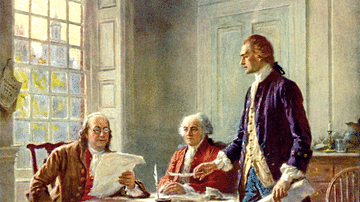Exploring the Foundations of Individual Liberty
A New Era Dawns: The Enlightenment Emerges
In the annals of human history, few periods have been as transformative as the Enlightenment. Emerging in Europe during the 17th and 18th centuries, this intellectual movement brought forth a wave of new ideas that challenged traditional beliefs and reshaped society’s understanding of politics, science, and philosophy. At its core was a profound emphasis on reason, rationality, and individualism.
One crucial aspect that emerged from this era was the concept of natural rights. Enlightened thinkers believed that all individuals possessed inherent rights simply by virtue of their existence – rights that were not granted or bestowed upon them by any external authority but rather derived from their very nature as human beings. These natural rights encompassed fundamental liberties such as life, liberty, property ownership, freedom of thought and expression.
The Influence on Political Thought: A Paradigm Shift
This revolutionary idea had far-reaching implications for political thought at the time. It challenged prevailing notions that power resided solely with monarchs or divine rulers who held absolute authority over their subjects. Instead, it argued for a more egalitarian society where governments existed to protect these natural rights rather than infringe upon them.
Enlightenment philosophers like John Locke played a pivotal role in shaping these ideas into coherent theories. Locke famously posited that individuals entered into social contracts with governments to secure their natural rights; if those governments failed to uphold their end of the bargain by violating these inherent liberties without just cause or due process, then citizens had both a right and an obligation to resist tyranny through peaceful means.
A Legacy That Endures: Impact on Modern Society
The legacy of the Enlightenment and its emphasis on natural rights can still be felt in modern society. The concept of individual liberty, enshrined in documents like the United States Declaration of Independence and the French Declaration of the Rights of Man and Citizen, owes a debt to these revolutionary ideas. It laid the groundwork for democratic systems that prioritize personal freedoms, limited government intervention, and equal protection under the law.
However, it is important to recognize that while these concepts were groundbreaking at their time, they were not without limitations or contradictions. The Enlightenment era was marked by its own biases and exclusions; women, enslaved individuals, indigenous populations often found themselves excluded from enjoying these proclaimed natural rights fully.
In Conclusion: A Catalyst for Change
The Enlightenment era’s exploration of natural rights fundamentally altered humanity’s understanding of politics and individual liberties. By challenging traditional authority structures and advocating for inherent human rights grounded in reason rather than divine decree or societal norms alone, this intellectual movement paved the way for profound social change. While imperfect in practice during its time, it set forth principles that continue to shape our quest for justice and equality today.

